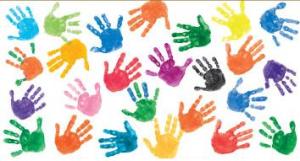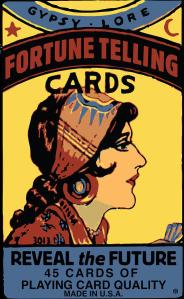Whether you are studying PR or work in the field you know that we talk about audiences, publics and stakeholders depending on whether we’re dealing with corporate or consumer PR, on what our companies calls them or on what we think sounds better at any given time. However, even though we tend to use these words interchangeably, this isn’t a “you say potato I say potato” situation. In truth, each one of these words means something slightly different and has different connotations. What’s the one thing they have in common? To some extent, they all focus on organizations and not just on the people they refer to which is why to complicate things even more, some experts are beginning to talk about tribes. Confusing, isn’t it? Not really. Each term is actually quite easy to define: Continue reading
Category Archives: New Media
Do we understand who we’re talking to?
During my time in the field of PR, I’ve been lucky enough to have met people from many different places and backgrounds. I have colleagues from Greece, China, the US, Brazil, India, Spain, Norway, the UK… Not only do we have fun working together, but we’ve also had the opportunity to learn from each other, as we all come from different cultures and therefore think differently and work differently. Nevertheless, statistics show that our small version of the U.N. is an exception to the rule as most professionals in our field are, in the case of the UK, white British females. For a profession that prides itself on being modern and open, this seems pretty close-minded. These studies show a lack of diversity in the field regarding gender, race and culture of which the implications are great: How does PR intend to effectively engage with people from different backgrounds if it doesn’t really understand who it’s talking to? Continue reading
Presenting PR! Some tips for effective PResentations

Steve Jobs was well known for his engaging presentations. This one, in October 2011.
Within the past few days I have attended a record number of presentations, many of which have been given by people who had never spoken in public until six months ago. During this time, everyone has developed their own personal style and techniques for successfully presenting their ideas in public. Whether you’re starting out in PR or are a seasoned pro in search of inspiration, these are the tips I can give you as a result of my experience and that of my colleagues: Continue reading
Be social or don’t be anything at all
If you go to Google and search for “quotes about the importance of social media” no less than 13,600,000 results come up. Anyone who has recently studied PR or has joined its professional ranks understands the crucial need for navigating and using social platforms efficiently, as this determines whether their clients have a thriving online presence or merely exist as Internet lumps. It is becoming standard practice to include a detailed look of clients’ social media presence when preparing a pitch. Not surprisingly, many organizations can make improvements in this regard, which indicates that either not all PR practitioners or not all organizations have realized what social media can do for them and how important it is that it be used properly. These are a few things they should remember. Continue reading
Keep calm and carry on. 10 steps to creating your own app.
 Unless you’ve been living under a rock or on a different planet, you already know that social media is considered to be the most revolutionary, life-changing thing to hit PR in 20 years. It may have taken you a while to accept this fact, a little longer to start using social platforms for PR and are probably just now getting comfortable with your corporate blog, Facebook, Twitter and YouTube sites. Good for you!
Unless you’ve been living under a rock or on a different planet, you already know that social media is considered to be the most revolutionary, life-changing thing to hit PR in 20 years. It may have taken you a while to accept this fact, a little longer to start using social platforms for PR and are probably just now getting comfortable with your corporate blog, Facebook, Twitter and YouTube sites. Good for you!
I hate to break it to you, but once again it’s time for you to innovate, put your creative thinking caps on and learn something new. This time around, the new challenge is to create apps. Yes, I’m freaked out too. But what I’ve learned might help you. Continue reading
Could social media be the end of the “PR Girl”?
While doing some research for a paper I’m writing (it seems like I do a lot of both lately) I came across an interesting article that brings together the ideas of gender and social media. The authors, Piet Verhoeven and Noelle Aarts, put forth an interesting idea: social media might help solve the issue of the gender gap in PR! Finally, something more or less tangible that we, men and women, can understand and relate to. Whether you’re a he or a she, read on for some insights that could make or break your career. Continue reading
Why all PR students should aspire to be geeks.

Steve Urkel from the TV show “Family Matters” is the ultimate geek and is probably an expert in social media.
The Merriam-Webster dictionary defines a geek as “an enthusiast or expert especially in a technological field or activity”. Traditionally, this term would have been used to describe the likes of Steve Urkel or Sheldon Cooper, the scientific, computer wizes who got picked on incessantly at school and who none of us wanted to be. The thing is that they are the ones who become successful millionaires, owning companies like Facebook, Microsoft or Apple. What’s this to us cool PR people? We have the opportunity to be a little more like them… and we should take it! Here’s why.
It’s no secret that biggest, most revolutionary change that has happened in Public Relations in years has been brought on by social media. No matter where we look there are books and journal articles talking about the advantages offered by these platforms with respect to engaging with the target audience, content curation and measuring results, among many others. Nobody disputes the fact that the future of PR lies within the infinite possibilities that social media has to offer. Why then is New Media not a mandatory module in the MAPR programs currently offered in the UK? Why are they not turning us into social media geeks? Continue reading
Is Big Data in the cards for PR?
As you have probably noticed, this is the time of year when many PR practitioners let loose their fortune telling side and publish an uncountable number of articles enumerating the trends that will dominate the field during the New Year. Most of the time it seems like these predictions are a repetition of what was said last year and the year before that. Not this time.
The world of communications is abuzz with the term “Big Data”. If you don’t know what it is (as I’m ashamed to say was my case until just a few days ago) it’s high time that you read up on the subject and get with the program, as Oprah would say. Continue reading





